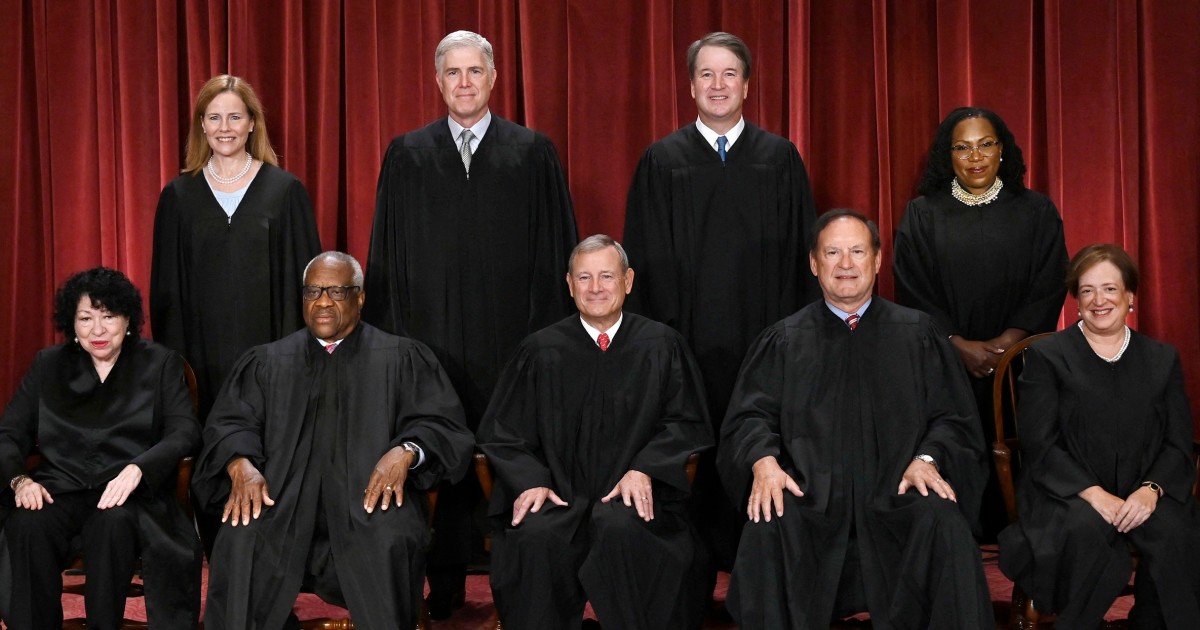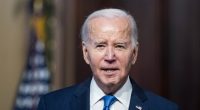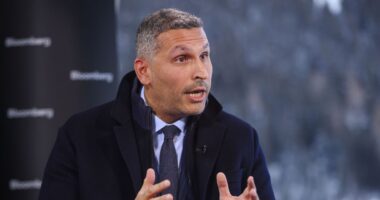
The case revolves around language in the Constitution’s 14th Amendment that bars people who “engaged in insurrection” from holding office. It raises many novel legal questions, including whether the language even applies to someone running for president.
Also lurking in the background is a case the court agreed to hear last week involving a man charged for his actions on Jan. 6 that could affect Trump’s Washington prosecution because he is charged under the same federal law at issue. That case is one of four different criminal prosecutions Trump is facing.
The politically divisive nature of the cases is a particular challenge for the court, which saw its favorability rating drop in opinion polls following its decision last year to overturn landmark abortion rights ruling Roe v. Wade.
That sparked a debate about whether the court’s legitimacy was under threat because it is at risk of losing the trust of the people. More recently, the court has been rocked by claims that justices, most notably conservative Justice Clarence Thomas, have failed to meet ethics standards.
The Supreme Court’s central role in the Trump legal wars is already drawing comparisons with the 2000 election, when the justices ended up issuing a pivotal 5-4 ruling that ended the Florida recount, enabling Republican candidate George W. Bush to prevail over Democratic opponent Al Gore.
“Once again the Supreme Court is being thrust into the center of a U.S. presidential election. But unlike in 2000 the general political instability in the United States makes the situation now much more precarious,” Rick Hasen, an election law expert at UCLA School of Law, wrote immediately after the Colorado ruling. In a follow-up email, he said the Colorado case, unlike the immunity issue, goes to the heart of the election itself.
Rick Pildes, a professor at New York University School of Law, had similar sentiments, agreeing with Hasen that the Colorado case in particular poses great risks to the court.
“Unless the court can reach a close to unanimous decision or decide the case in a way that scrambles up the perceived ideological divides on the court, half the country is going to believe the court acted in a partisan fashion,” he said.
In all the election-related cases now approaching the court, timing is key, with Trump the frontrunner for the Republican nomination with primary season quickly approaching.
The Colorado Supreme Court took some of the heat out of its own ruling by making it clear that the decision will remain on hold indefinitely once Trump asks the U.S. Supreme Court to intervene.
The state court said that in the meantime, Colorado officials “will continue to be required to include President Trump’s name on the 2024 presidential primary ballot” until the Supreme Court acts.
With the Colorado primary ballot deadline in early January, there is little time for the Supreme Court to do anything substantive before then, meaning it remains reasonably likely that Trump will be on the ballot for the March 5 primary while the litigation continues.
The Supreme Court could, if it chooses, take up the case and issue a ruling, although unless it acts unusually quickly, it may end up only being applicable in the general election. Any decision would affect similar cases in other states.
The justices also have the option of going slow on the immunity issue despite Smith’s request, which seeks to circumvent the normal appeals process. Proceedings are continuing in the U.S. Court of Appeals for the District of Columbia Circuit, which has yet to rule. It’s scheduled to hear oral arguments on Jan. 9.
The Supreme Court could simply wait for the appeals court to act before deciding whether to intervene. Trump’s response to Smith’s request is due to be filed on Wednesday.
In the separate case involving Jan. 6 defendant Joseph Fischer, the court in the coming months will decide whether to dismiss a charge accusing him of obstructing an official proceeding, namely the certification by Congress of President Joe Biden’s election victory. It is one of the charges facing Trump in the Washington election interference case, with a trial scheduled to begin in March.
Trump could use the impending ruling in Fischer’s case to try to delay the start of the trial and if Fischer wins could seek to dismiss the charge.
Source: | This article originally belongs to Nbcnews.com










